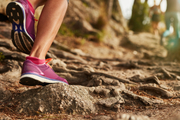Don't Get In A Pickle With Injuries!
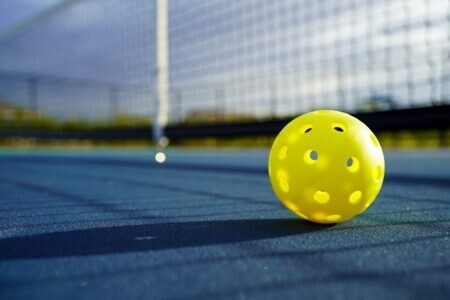
Pickleball is the fastest growing sport in the United States right now – even around Vermont, local parks and facilities are turning extra space into Pickleball courts to meet the growing demand of the community. If you haven’t heard of it, Pickleball is a racquet sport that combines many elements of tennis, badminton, and ping-pong, and was created to be enjoyed by people of all ages and skill levels. It originally started in Washington in the 1960s when two families were looking for something fun to do on a summer day – they had a badminton court but no badminton equipment. Finding ping pong paddles and a wiffleball instead, they decided to play with those and gradually came up with rules to govern their new game. By the 1990s, all 50 states were playing Pickleball, and it became an international game by the mid-2000s.
As with any sport, playing Pickleball can lead to injuries, especially if you decide to be more competitive! We have seen an uptick in both acute and overuse (repetitive) injuries from Pickleball over the past years as people are playing more often and more and with more vigor. Common acute injuries include ankle sprains, knee ligament sprains, and hamstrings strains, while common overuse injuries include lateral elbow tendinopathy (commonly called tennis elbow), rotator cuff tendinopathy, Achilles tendinopathy, and plantar fasciitis. As always, we aim to get people back on the courts, but if we can help people to avoid developing these injuries in the first place, that is the best option!
Injury Prevention Tips
Warm-up before you play!
Warming up before you play increases blood flow to the muscles so they can more easily stretch & contract while playing. This will help to prevent muscle strains, especially into the groin, hamstrings, and calf. Warm-ups don’t have to be extensive – it can even be a 5 min walk around the courts prior to playing. Other options include:
Walking march
Walking straight leg kicks (aka tin soldiers or goosestepping)
Walking butt kicks
Hip openers (see below)
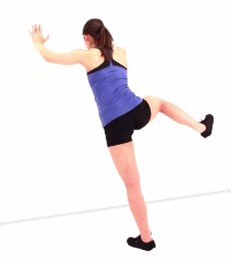
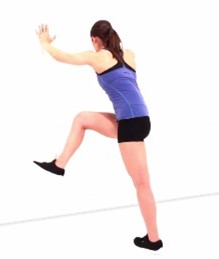
Hydrate & refuel your body
You will sweat while playing Pickleball and maybe more than you think, so it is very important to drink water and replenish electrolytes that your body loses in your sweat. As you become dehydrated, you start to experience dizziness, muscle weakness, fatigue, an irregular heartbeat and possibly fainting. All of these increases your risk of acute injury and could even lead to more serious health issues, especially if you play on a hot and/or humid day!
Take time to stretch afterwards
After playing, it is imperative to stretch the muscles that you just used to prevent tendinopathies. These occur when the muscles become tight and less responsive to stretching while being used, so that stretch goes into the tendon (a stiffer connective tissue), and it sustains microtears. These often take months to resolve once they develop, so this is a situation where an ounce of prevention is worth a pound of cure! Great stretches are:
Calf - do it with the back knee straight and then repeat with the knee slightly bent to get both muscles in the calf
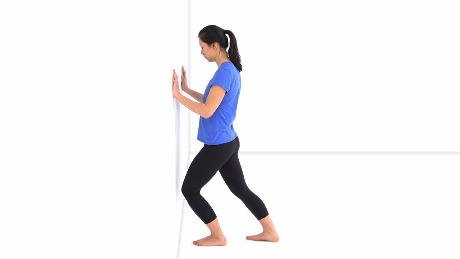
Hamstrings
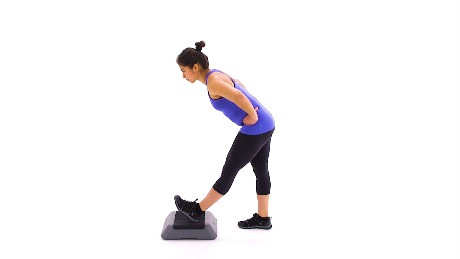
Quadriceps - if you can't grab your ankle, you can put your foot up on a bench or chair behind you
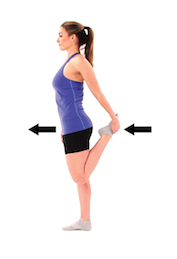
Chest & biceps - put your hand on a wall or post to keep the arm in place as you turn your body away
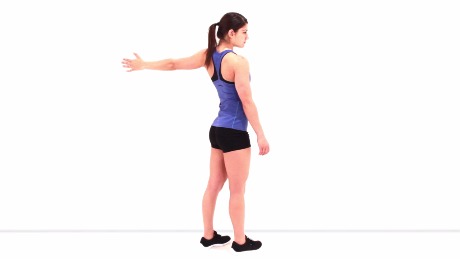
Wrist - perform both to stretch muscles in the forearm
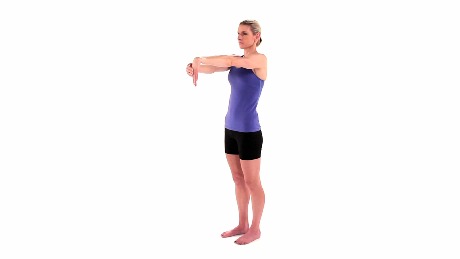
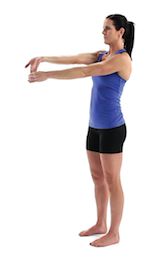
Hip flexor - push your hips forward while your shoulders lean slightly back to feel the stretch in the front of your hip & thigh
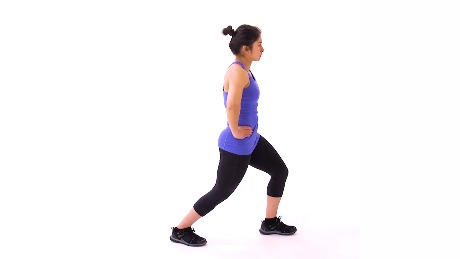
Cat/cow
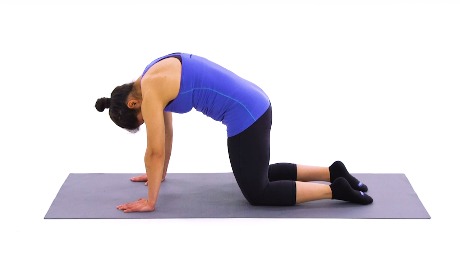
Training in between
Most people play pickleball as weekend warriors – they are not very active during the week (mostly due to work demands) and then go hard on the weekends. This increases your risk of acute and overuse injuries, so we recommend exercising a couple of times during the week to work on mobility, strength, and balance. For mobility, you can repeat all of the dynamic warm-up exercises and cool-down stretches. As for strengthening and balance, great options are:
Bridges - targets the glute max in the buttocks - make sure to squeeze your buttcheeks tight to lift up
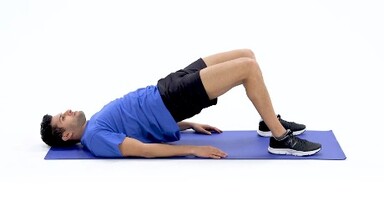
Lunges - targets the quads in the thigh and works on balance - go as deep as you feel comfortable
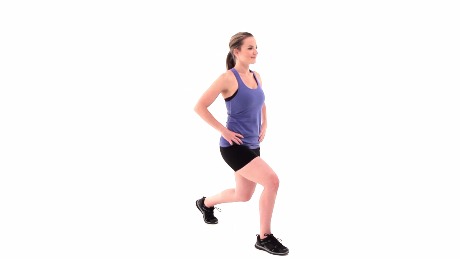
Single leg cone taps - targets your hamstrings and works on your balance
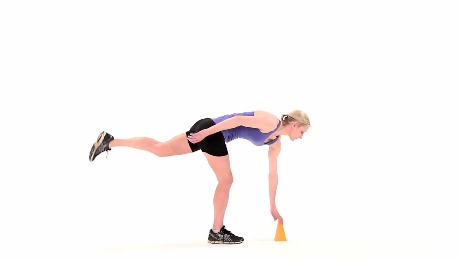
Banded side steps - targets the glute medius at the outside of the hips - make sure to keep your feet parallel as you step
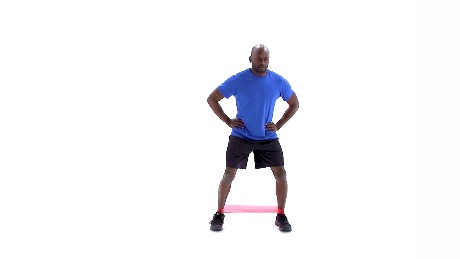
Banded shoulder rotations - targets the rotator cuff in the shoulder - make sure to keep your elbows by your side
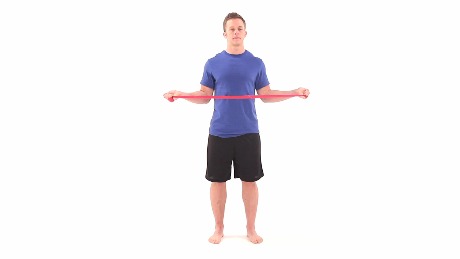
Banded shoulder pull-aparts - targets the muscles between the shoulder blades
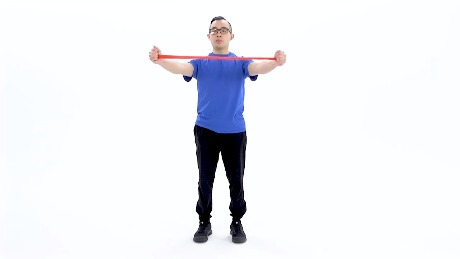
Want more information on Picklball and where to play? Check out USA Pickleball!

